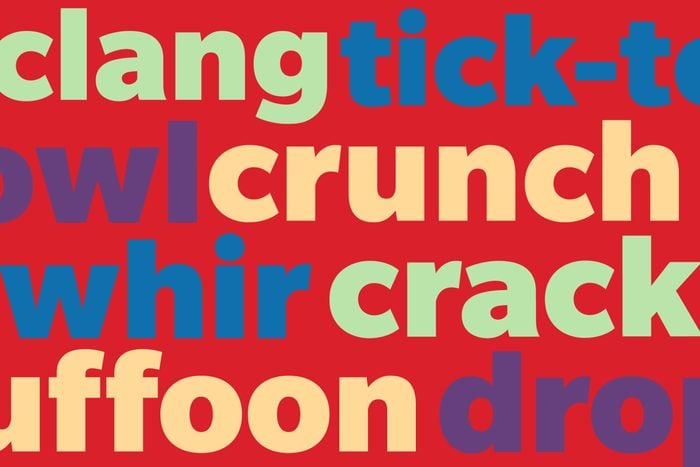
Onomatopoeia definition and examples
In addition to being one of the most fun words to say—and hardest to spell—in English, “onomatopoeia” probably calls to mind a whole bunch of silly, fun words. Onomatopoeia is the process of creating a word that mimics a sound and using it to describe that sound. (The word “onomatopoeia” is also used to describe the words themselves, rather than just the process.) Examples of onomatopoeia are the types of words you can imagine inside a colorful bubble in a comic book. So what is an example of onomatopoeia? “Boom!” “Splat!” “Pow!” These are some of the most obvious ones, but there are plenty of very common words you probably had no idea were onomatopoeia examples. Need to add some pizazz to your writing or speech? Try these expressive utterances.
One potential area of confusion: Words like “wow,” “eek,” or even “ugh” are not onomatopoeia. Instead, these words, outbursts that express emotion rather than a specific sound, are interjections or exclamations. While you’re brushing up on fun words, check out these palindrome examples and examples of hyperbole as well.
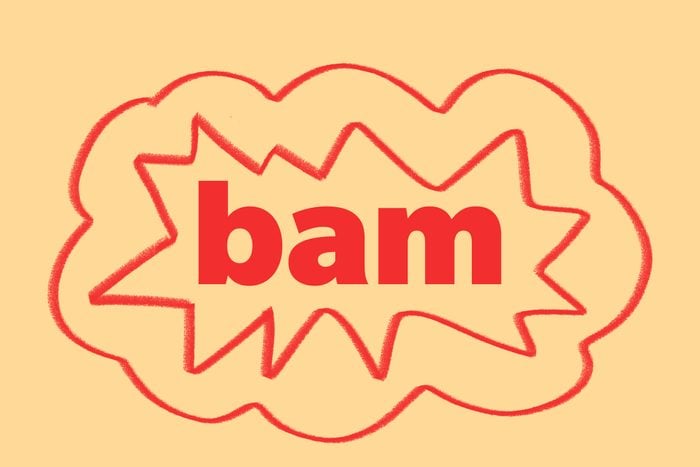
Bam
Emeril’s a master of onomatopoeia! You might immediately think of the celebrity chef when you hear the word “bam,” as it was such an iconic catchphrase. This percussive word indicates some kind of collision, impact, or, in the event of Emeril, dramatic flourish. Get a look at some funny oxymoron examples.
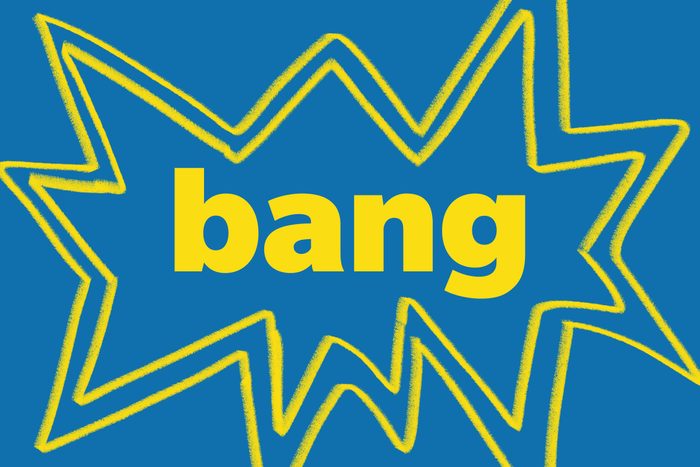
Bang
The band AJR’s hit, pairing the repetition of the word “bang” with actual explosive uses of percussion, drives home this onomatopoeia example. (Or, for a less immediately current musical example, The B-52’s “Love Shack.”) More sinister uses of this onomatopoeia example, coming from the Old Norsa banga or “to hammer,” involve guns firing or aggressive knocking on a door. Or perhaps knocking on wood to avoid bad luck—why do we do that, anyway?
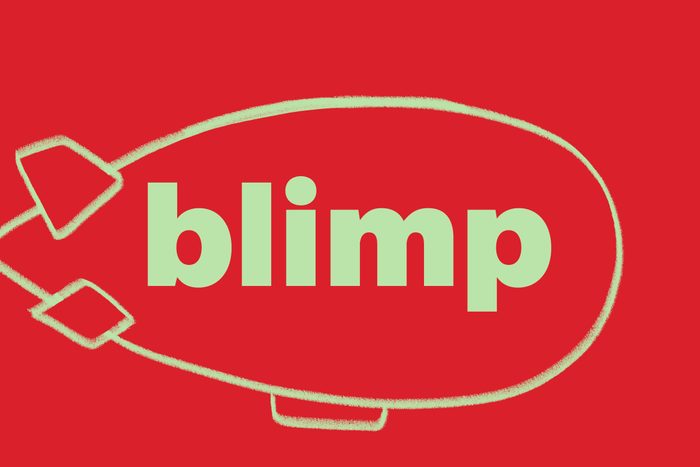
Blimp
The technical term for a blimp is actually “dirigible.” The name “blimp” came to be when a British lieutenant was inspecting one of the aircraft and snapped his thumb off of the gasbag. The snap on the taut fabric created a noise that he interpreted as “blimp,” and since then, dirigibles have been known as blimps. These British slang words and phrases always confuse Americans.
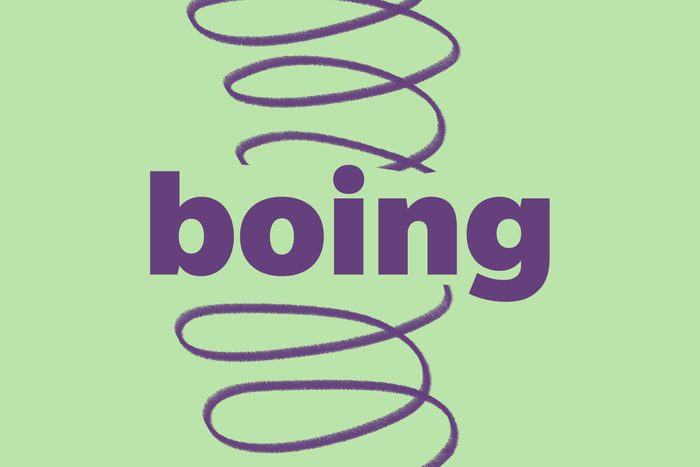
Boing/Bounce
“Boing” is a pretty obvious, and specific, example of onomatopoeia, as it primarily refers to the sound made by a bouncing or springing motion. But did you know that “bounce” began as onomatopoeia as well? Specifically, around the 13th century, when it drew inspiration from the Low German bunsen, meaning “to beat,” and the Dutch bonken, meaning “to thump” (“Bonken“! Who says the Middle Ages weren’t fun?!). Check out these other funny words that sound fake.
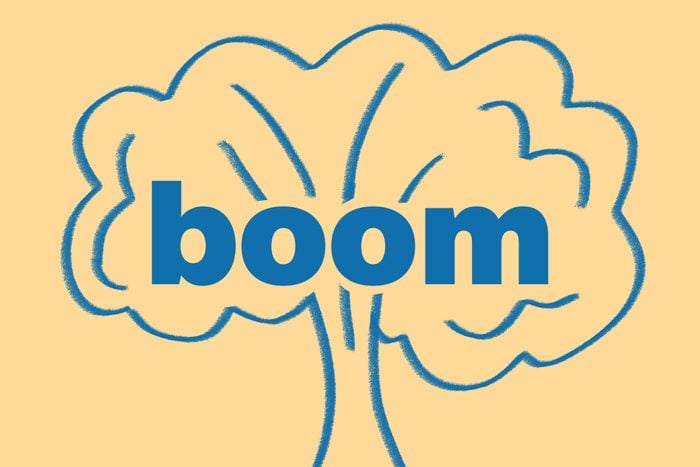
Boom
From the explosion of a firework to the sonic variety created when something moves faster than the speed of sound, this onomatopoeia example is probably one of the first that comes to mind. It dates all the way back to the 1400s from the Middle English bombon or bomben, which also mimicked the sound. Some ubiquitous sounds stand the test of time! Speaking of, these “modern” words are way older than you think.
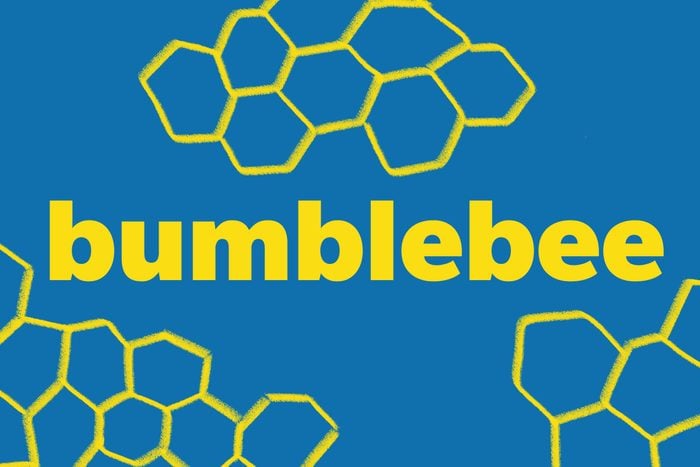
Bumblebee
Before speakers settled on “bumblebee,” this little creature was referred to as “humblebee,” “dumbledor,” and “bombyll.” All of them were meant to represent the buzzing of a bee. These funny palindrome sentences will crack you up.
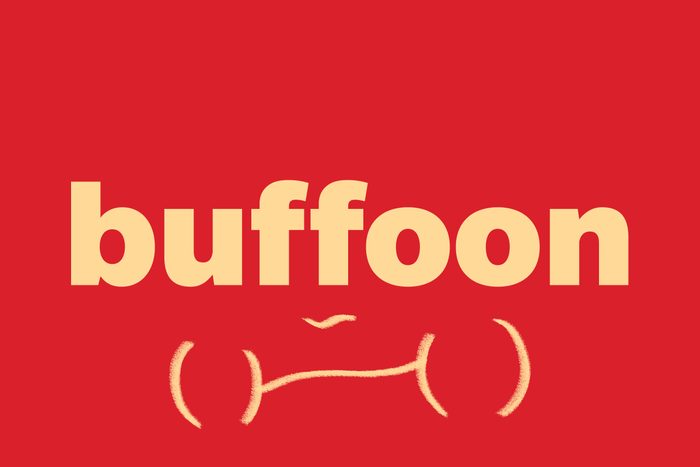
Buffoon
The word, meaning a stupid person, is meant to sound like a person puffing out their cheeks. It originally comes from the Italian word “buffare,” which actually translates to a person puffing out their cheeks. It all connects because, in the 1500s, buffoon was a style of comedic dance where people would puff out their cheeks to look more foolish. Check out the origin of these common idioms.
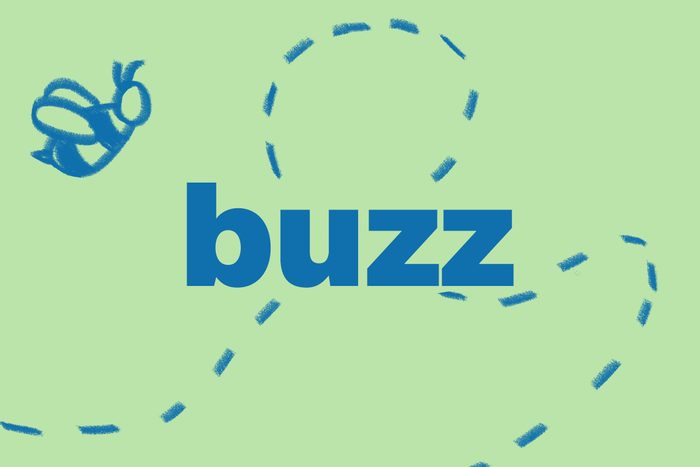
Buzz
If the bumblebee itself comes from an example of onomatopoeia, it only makes sense that the noise it makes does, too. This is another old, old word, dating back to the 14th-century Middle English busse or bussen. These funny malapropism examples will make you laugh.
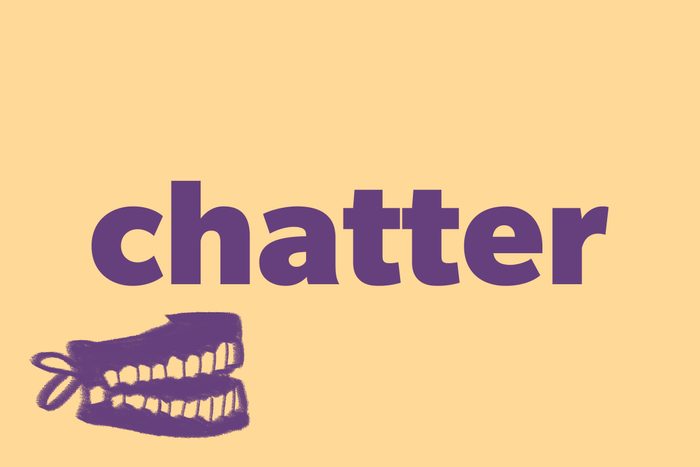
Chatter
“Chatter” is an onomatopoeic word that packs a lot of variety! Your teeth chatter when it’s cold, but you also chatter excitedly with your friends as you leave a great movie—and monkeys are often described as making a chattering sound! “Chatter” also developed as a noun, usually referring to the speech-related definition of “chatter.” Word nerds, take note: The most complicated word in English is only three letters.
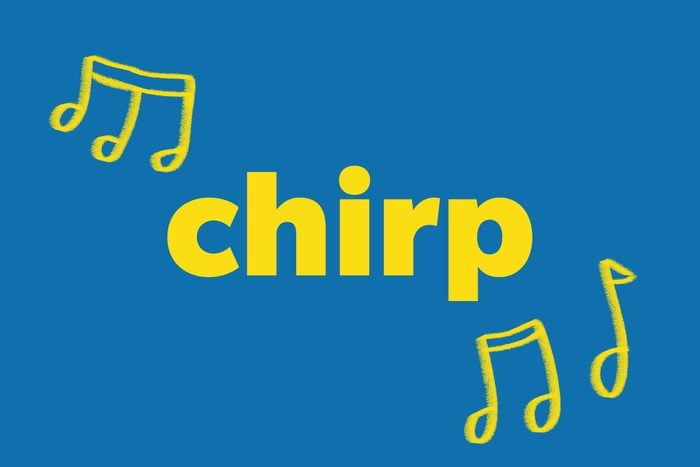
Chirp/Chirrup
Birds chirp in the morning; bugs chirp on summer nights. While “chirrup” might seem like an old-fashioned, almost comically “extra” precursor (or fancification) of “chirp,” “chirp” actually came first. Just be glad we don’t use the word they came from, the Middle English chyrpynge, anymore! Onomatopoeia words can be annoying—but they’re far from the most annoying word in English.
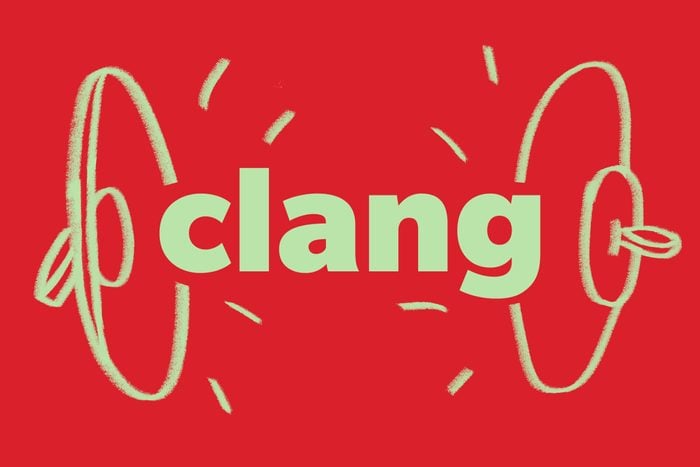
Clang
A more specifically metallic cousin of “bang,” you might hear “clang” used to describe the noise produced by pots and pans. Dating to the 1500s, “clang” comes from the Latin clangere, which in turn drew inspiration from the Greek klazein.
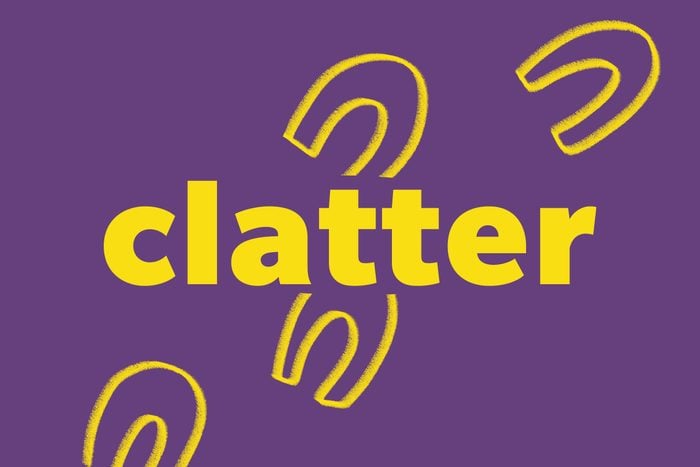
Clatter
“A Visit from St. Nicholas” (popularly known as “The Night Before Christmas”) by Clement Clark Moore might have the best-known use of the Old English remnant “clatter”: “When out on the lawn there arose such a clatter / I sprang from the bed to see what was the matter.” A delightful use of both rhyme and onomatopoeia!
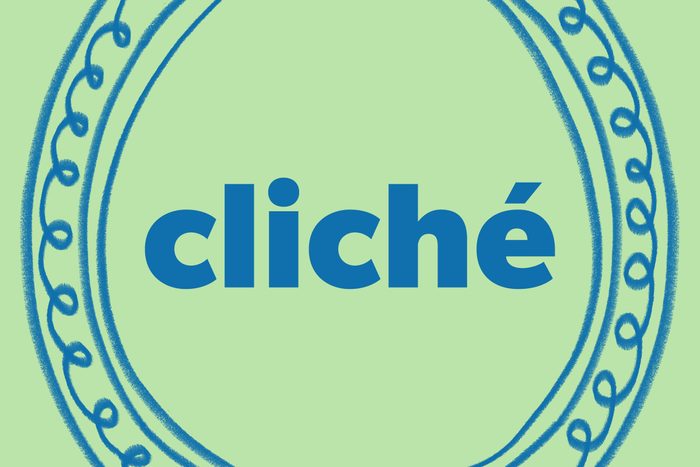
Cliché
A cliché is a phrase that is used over and over again (kind of like an aphorism)—and we’re all guilty of saying them. In the 1800s, a French printer decided to make plates with common sayings on them that they could use repeatedly so they wouldn’t have to rewrite it every time. The noise the plate made when printing the words sounded like “cliché.” This is one of the more surprising onomatopoeia examples. So you’ll probably also be impressed by the surprising origins of slang words that you use all the time.

Click/Clack
“Click” describes a short, sharp, often mechanical sound. That’s how it began, but “click” is a linguistic powerhouse of a word today. It can refer to the physical motion of clicking a keyboard key or a link, or, as you’ll hear a lot nowadays, the viewing of a piece of online content (“How many clicks did this story get?”). “Click” has lent onomatopoeic character to everything from delightful rhyming warnings (“Click it or ticket!”) to movie titles (remember the 2006 Adam Sandler universal-remote comedy?). “Clack” can stand alone as well, referring perhaps to high heels clacking on a floor or long fingernails clacking across a desk. But we’re personally fans of the combo “click-clack,” “clickety-clack,” or any such linguistically creative variation. These examples of onomatopoeia were used to great effect in the charming children’s classic Click, Clack, Moo: Cows That Type (“moo,” of course, being another popular onomatopoeia example).
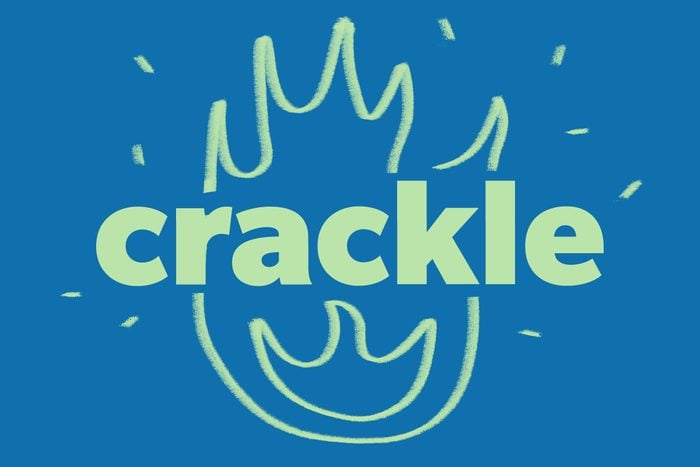
Crackle/Crack
Imitating a more pleasant sound, like a crackling fire or perhaps a certain cereal mixing with milk, “crackle” began as a 15th-century variation of the verb “crack”—another solid onomatopoeia word.
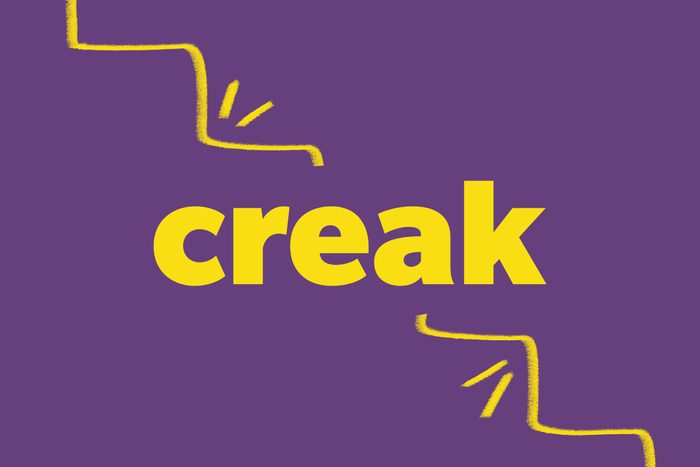
Creak
The stuff of horror nightmares, perhaps? This use of onomatopoeia usually calls to mind a creaky stairway or door. Something like a creaking rocking chair can be a bit more pleasant, though!
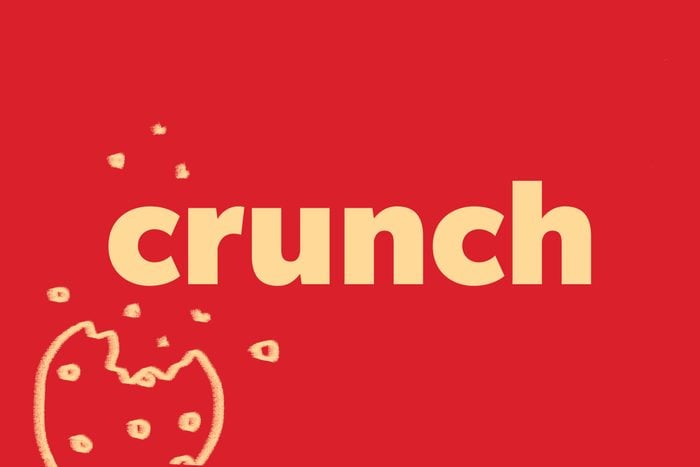
Crunch
Whether a Tootsie Pop–eating owl or a blue and red candy wrapper, “crunch” is all but synonymous with taking a bite of yummy food—to the point that it’s spun off its own adjective, “crunchy.” But, of course, that’s not its only onomatopoeic use. A car getting crushed in a junkyard, for instance, might also make a sickening crunch.
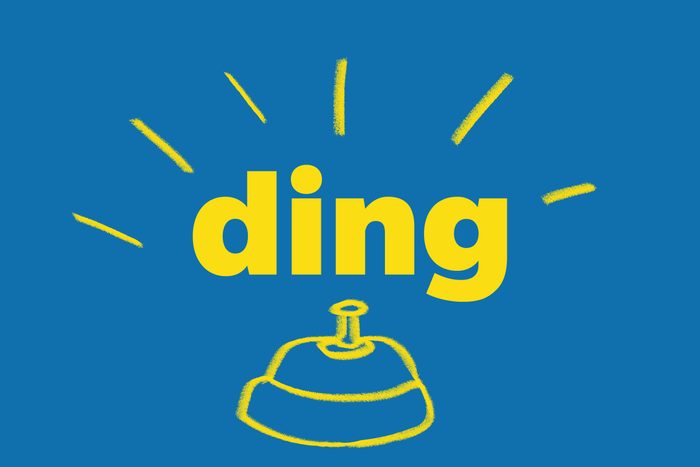
Ding
Do you simply see this word and instantly hear the distinctive noise of a hotel call bell? Us, too! According to dictionary.com, “ding” likely comes from the combination of “din” and “ring.” In that way, it’s a bit of a portmanteau.
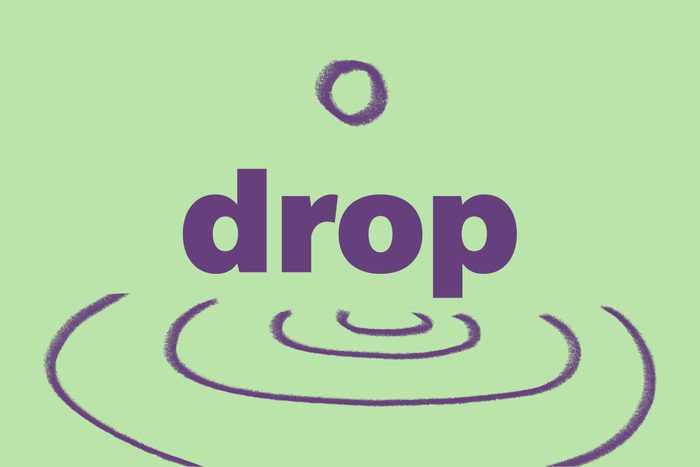
Drip/Drop
“Drip, drip, drop, little April showers / What can compare with your beautiful sound?” Was an example of onomatopoeia ever so nicely spelled out? These companion words both hail all the way from Old English. Both “drip” and “drop” can refer to the physical unit of liquid, too.
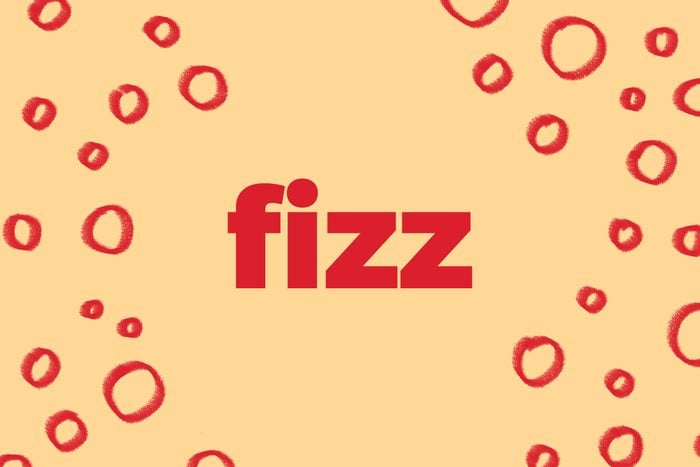
Fizz
That enduring Alka-Seltzer commercial (“Plop, Plop, Fizz, Fizz!”) just goes to show you how powerful uses of onomatopoeia can be. The word “fizz,” imitative of a “hissing or sputtering sound” and often alluding to liquid, got its start in the late 1600s.
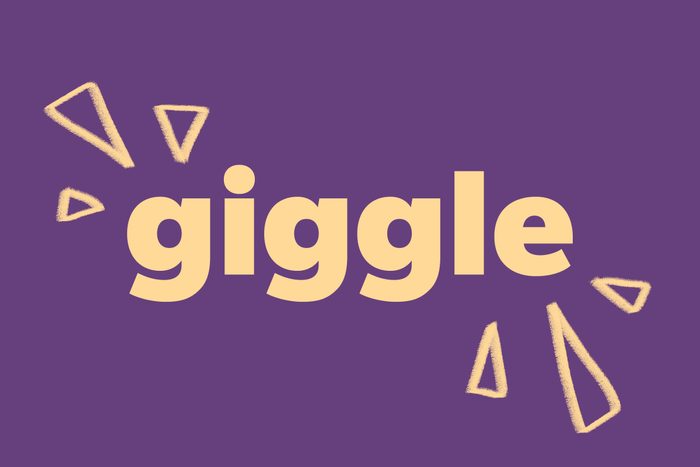
Giggle
Was there ever a more fun English word, in both sound and meaning? Every time we describe this sharp, silly, punchy little laugh, we’re technically imitating its sound! The 16th-century word draws its inspiration from the Dutch gigelen and the German gickeln.
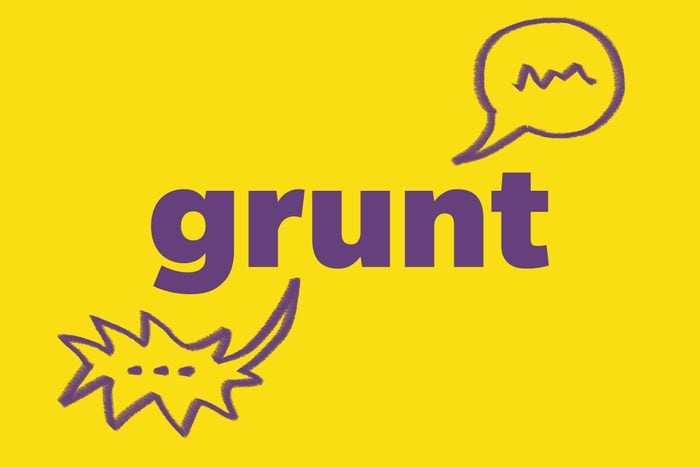
Grunt
A bit more subdued (but no less expressive) than these other examples of onomatopoeia, the word “grunt” is popular as both a noun and a verb. These are the 30 most beautiful words in English (spoiler: “grunt” is not among them).
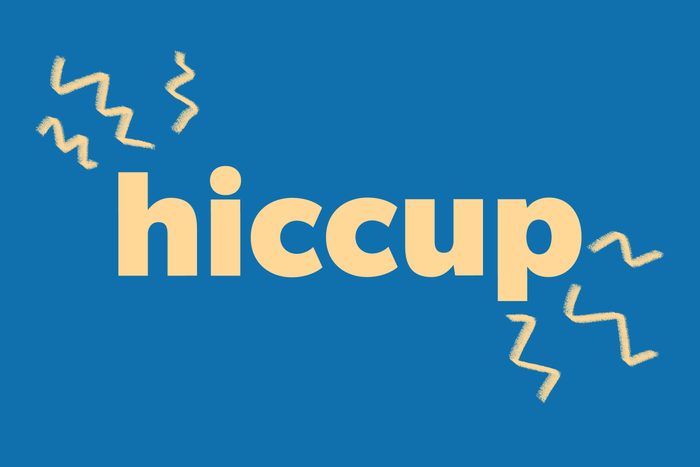
Hiccup/Hiccough
How annoying are the hiccups?! At least you can chuckle at the obvious-now-that-you-know-it bit of trivia that the word was coined because of what they sound like. The word developed in the 16th century, influenced by the Low German hick and a medieval music technique called “hocket,” which produced a similar sound by quickly alternating voices. “Hiccough” has evolved as a less common variation, and it’s generally pronounced the same.
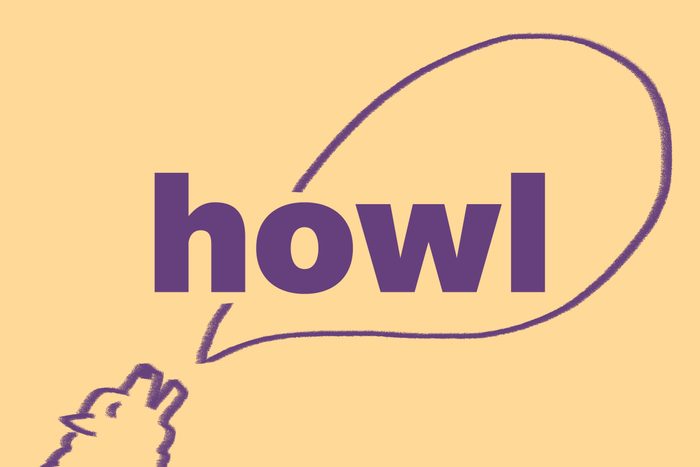
Howl
Though when imitating the sound of a dog or wolf crying at the moon, you’re more likely to vocalize something like “Ouuuuuwwww!” than the actual word “howl!”, “howl” did begin as an onomatopoeia word.
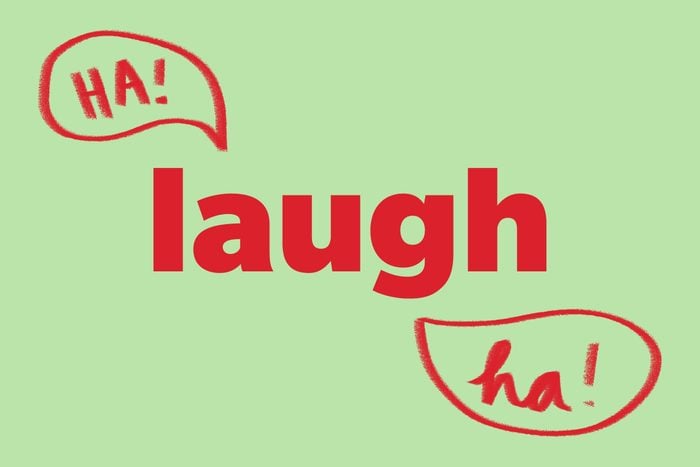
Laugh
Here’s another ubiquitous sound we make that has an onomatopoeic origin! Early Europeans used the word “hlaehhan” to indicate laughter (think “hahaha”). It doesn’t exactly roll off the tongue, but does sound a little bit like someone laughing. “Hlaehhan” was eventually modernized, and after dropping letters and adding some new ones, the word “laugh” came to be. You’ll laugh at these grammar jokes every word nerd will appreciate.
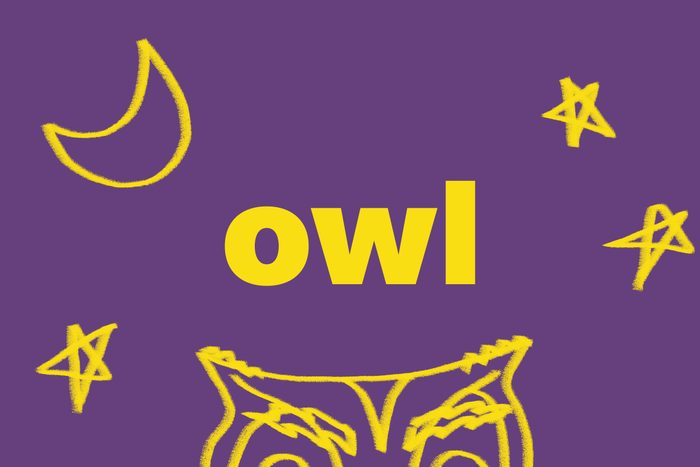
Owl
We wonder if that wise old owl crunching his Tootsie Pop knows that his name is also an onomatopoeia example! Similar to the word “sneeze,” the word “owl” has gone through a few different spellings. Its original spelling was “uwwa” because of the noise the bird makes. “Uwwa” was eventually changed to “uwwalon” and then to “owl.”
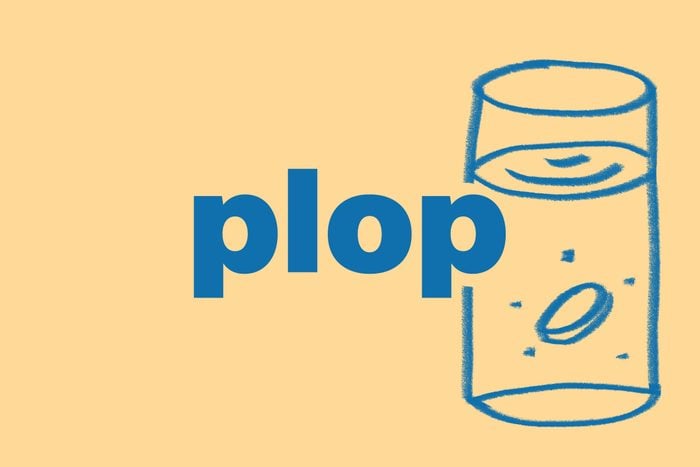
Plop
Ah, there’s the onomatopoeic companion of “fizz” from that Alka-Seltzer add. Words don’t get much more fun than the fairly recent imitative word “plop.” Dating back only to the 1800s, it refers to a short, often reverberating sound reminiscent of something falling into water. For another meaning of the word, you can also plop down to watch TV at the end of a long day, an activity we fully support.
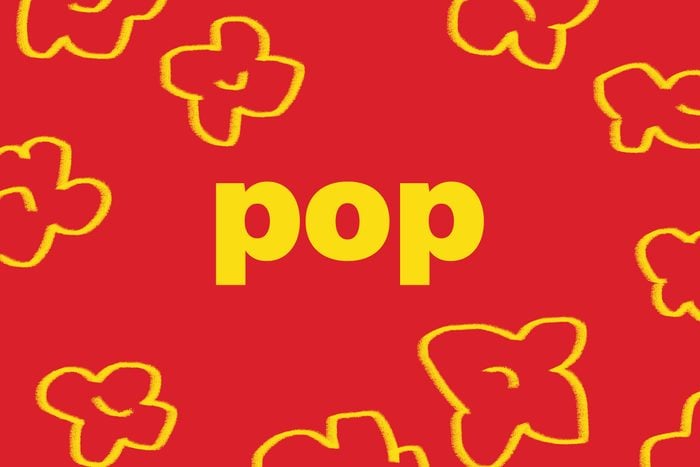
Pop
This one-syllable behemoth can mean all sorts of things! From balloons to popcorn to your ears on a plane, lots of everyday objects can go “pop” (or just “pop,” as it’s also a verb!). From the Middle English verb poppen, “pop” indicates a short, sharp sound.
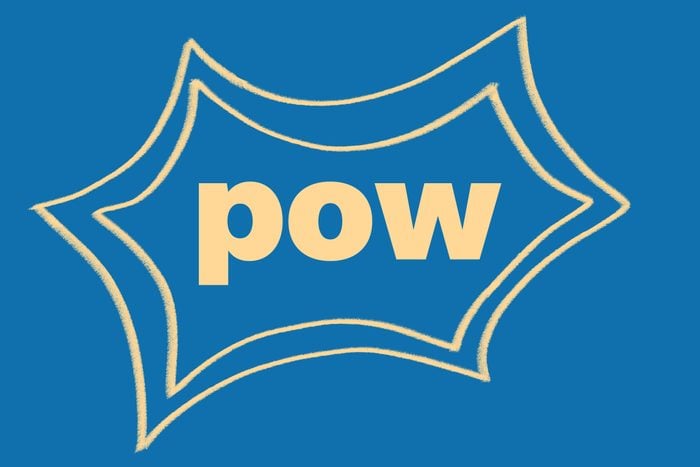
Pow
The vastly more explosive cousin of “pop,” “pow” is one of the onomatopoeia words you’re likely to see almost exclusively as a standalone, like in a comic book. Yet it’s probably an older word than you think! According to Merriam-Webster, “pow” as an imitative noun dates back to 1580! Do you know the meaning of these common acronym examples?
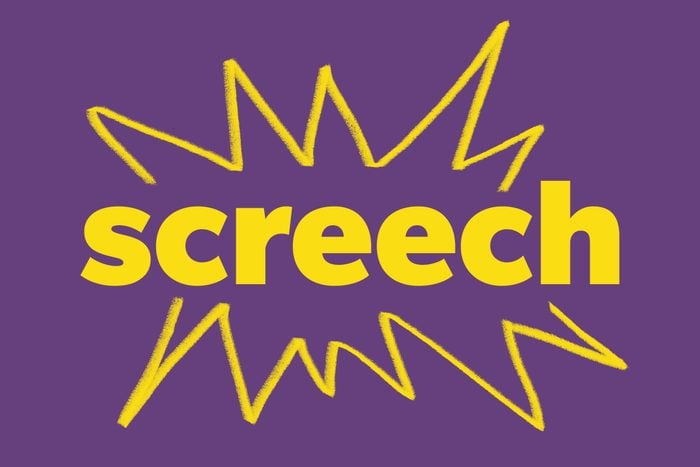
Screech
This is not generally an onomatopoeia sound you want to hear. Generally considered even rougher on the ears than a scream, a screech is a hallmark of horror movie victims but can also be let out by, say, a vengeful bird of prey.
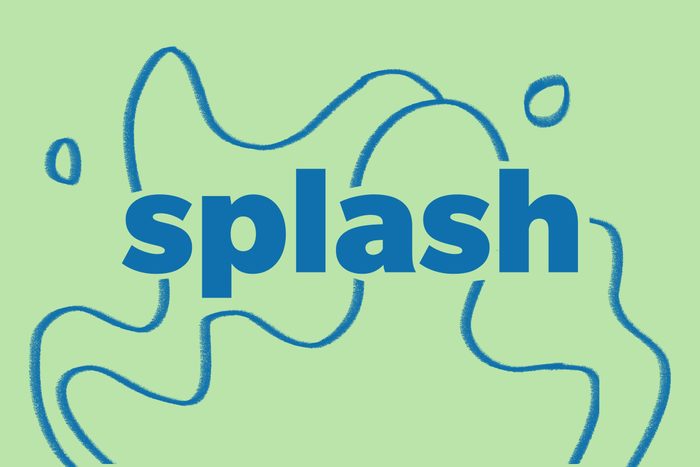
Splash
Almost exclusively associated with liquid, “splash” is one of the most common onomatopoeia words. “Little Timmy’s cannonball made a giant splash!” is one way to use this word; “Little Timmy did a cannonball and splashed me while I was trying to stay dry!” is another. “Splash” also helped spawn the next two onomatopoeia examples.
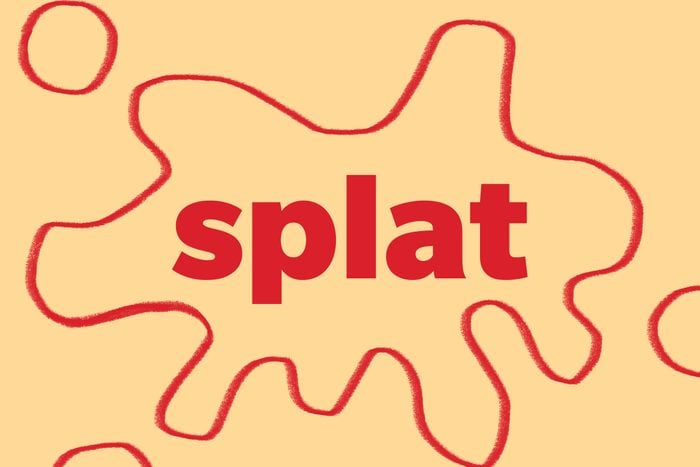
Splat/Splatter
“The scoop of ice cream fell out of the cone and hit the ground with a splat!” Were onomatopoeia-examples sentences ever so sad?! “Splat” is what’s known as a “back-formation” of its onomatopoeic sibling “splatter,” which came first. “Splat” is a bit more decisive and singular than “splatter.” You’re also more likely to see the former as a standalone, comic-book-style use of onomatopoeia (“SPLAT!”) and the latter as part of a sentence (“Put down some newspaper in case the paint splatters.”) Both probably result in a mess, though! “Splatter,” in turn, is likely a portmanteau of “splash” and “spatter.”
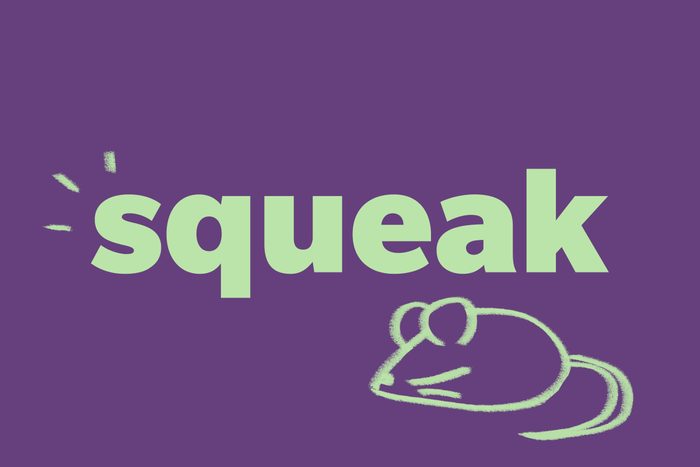
Squeak
The best-made sounds of mice and men can be represented by “squeak”! This high-pitched, tinny onomatopoeia word can be a classic sound that a mouse or a rat makes; a nervous or shy utterance by a human; or even a usually-unpleasant, shrill noise from an object like a door or a wheel. It’s a big one that you’ll see in adjectival form—after all, you know what they say about squeaky wheels! If you like silly words like onomatopoeia, see if you can brave the toughest tongue twisters in English.
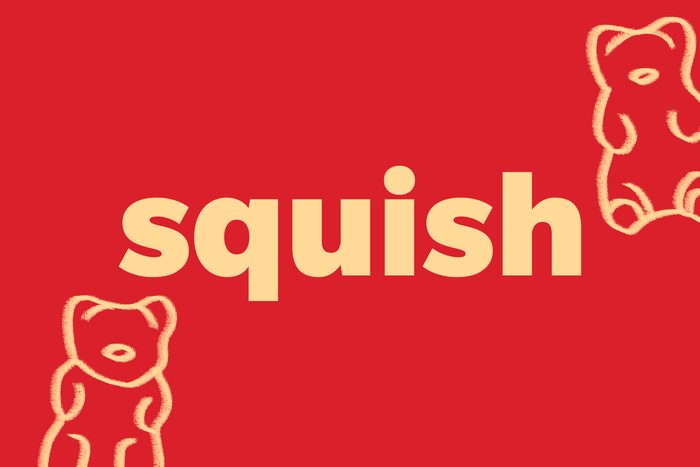
Squish/Squelch/Squash
While “squish” might call to mind a tactile sensation even more than a sound, you can surely hear the squishing noise of someone wearing sneakers traipsing through deep mud. Or is that perhaps a squelch? They mean almost the same thing, with squelch having perhaps a bit of an edge in the grossness department. Perhaps surprisingly, both of these words (most likely) originate from squash, which came first and yet is probably the one you’re least likely to see used as onomatopoeia.
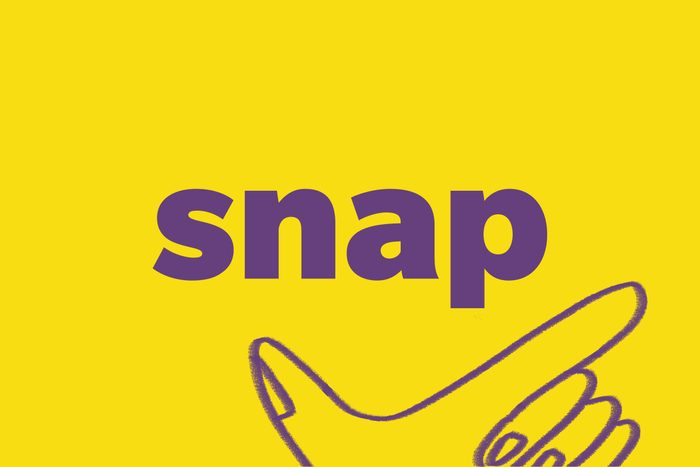
Snap
“Snap” can convey very different moods depending on the context! You can snap your fingers to a catchy song, but a snap of a twig can also be a downright terrifying sound! In a lot of contexts, “snap!” can indicate breaking, while a “snap” of the fingers can be much more pleasant. Unless you’re Thanos. The word comes from a Middle Dutch or Middle Low German word for “to bite” or “to seize.”
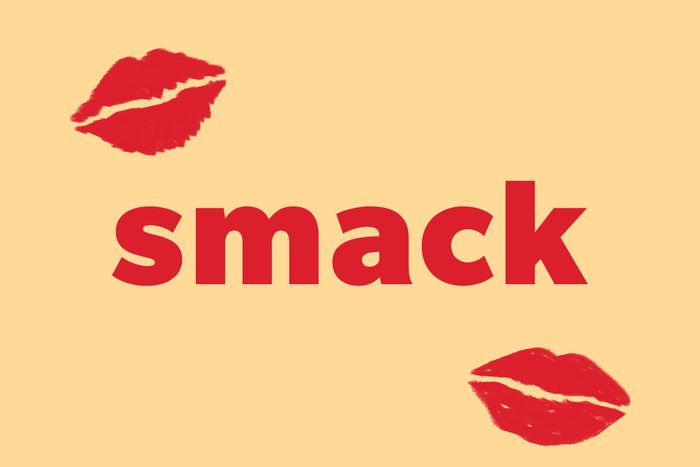
Smack
Whether the sound your lips make when you’ve finished eating something delicious or the sound of a face receiving an angry slap, a good sharp smack will instantly catch people’s attention, whether as a word or in real life. The word evolved from the downright hilarious Dutch and Low German smakken and the German schmacken—both of which we not-so-secretly wish were still common words.
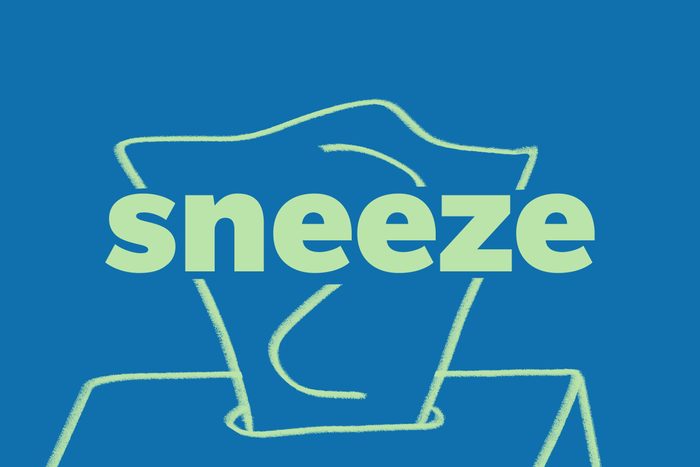
Sneeze
The original onomatopoeias for the action of forcefully expelling air out of your mouth and nose were “fneosan” and “fnese.” Saying that out loud sounds a lot like a sneeze, right? The “f” was mistaken for an “s” on Old English manuscripts and the words were changed to “sneosan” and “snese.” Then, it was eventually modernized to “sneeze,” making it one of the under-the-radar examples of onomatopoeia. Once you learn about these examples of onomatopoeia, make sure you also brush up on the homophones people confuse all the time.
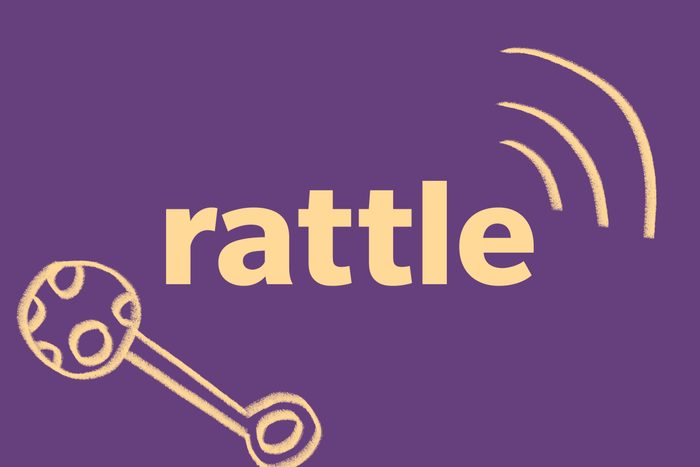
Rattle
From a baby’s first toy to ghostly chains, plenty of things can rattle, as long as they make a series of quick, sharp sounds! “Rattle” can also indicate motion as well as sound, especially of a variety that could create a rattling sound. Gotta love when your wooden roller coaster car rattles on its way up the big hill.
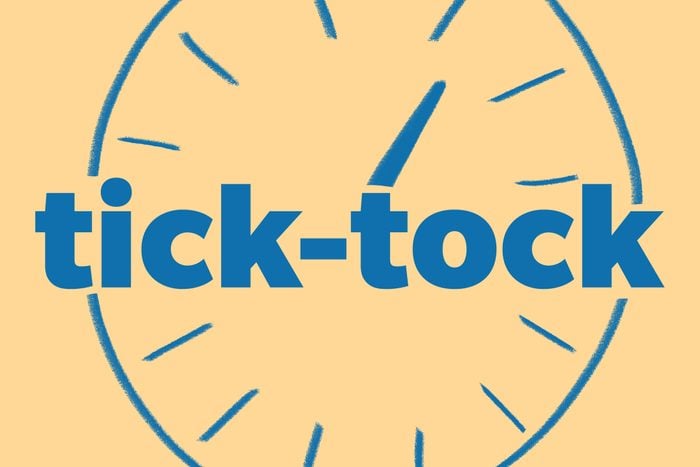
Tick-tock
Viral app aside, the debut of the word “tick-tock” corresponds with the debut of the electric clock, around the 1840s. To this day, “tick-tock” is used almost exclusively to refer to the sound a clock makes, while “tick” on its own can reference a slightly larger range of sounds. Both suggest a monotonous, rhythmic noise. If someone wants you to hurry things up a little, they might say, “Come on, let’s go, tick-tock!” Funnily, you’ll also hear such impatient people say, “Clock’s ticking,” but not “clock’s tick-tocking.” Huh!
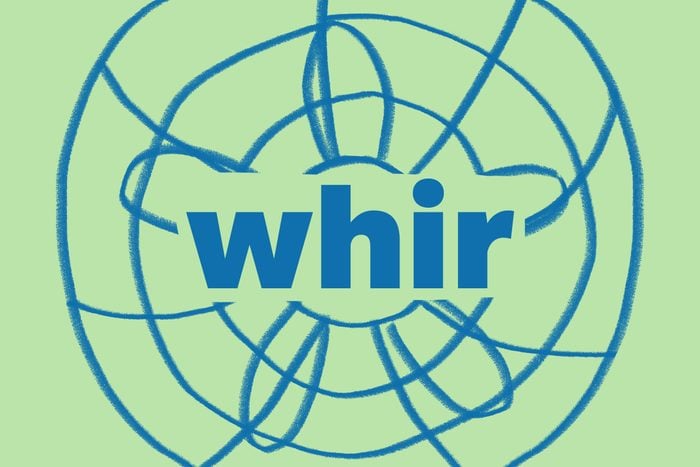
Whir
A whimsical word to represent a frequently annoying sound, “whir” may call to mind a mechanical rotation–type sound, but butterflies’ or other creatures’ wings can also be described as “whirring.” Whether that’s more or less comforting is up to you.
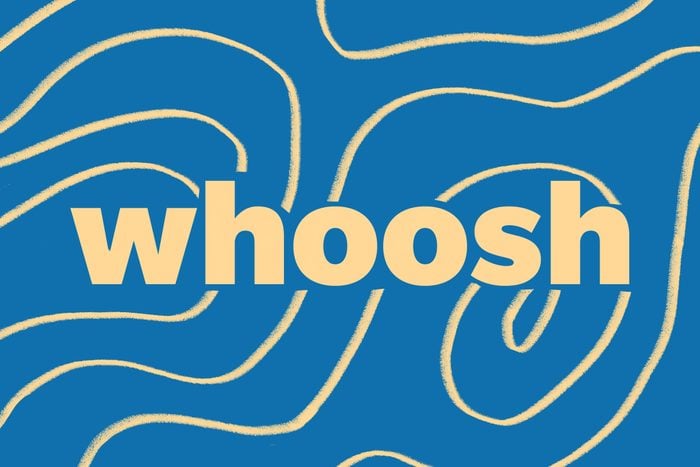
Whoosh
“I love deadlines. I like the whooshing sound they make as they fly by.” Onomatopoeia, figurative language, and humor? This Douglas Adams quote has it all for word nerds (and procrastinators)! Deadlines don’t actually make the vast rushing sound indicated by the word “whoosh,” but a river, a speedy car, or a big gust of wind might. Next, explore these pangram examples you can use to impress your friends.

